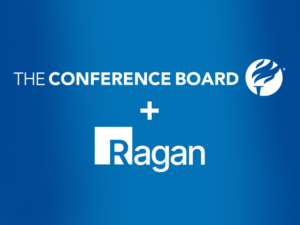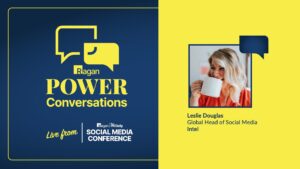BMW North America’s Mariella Kapsaskis on opportunities to embrace and where comms is heading
The head of U.S. corporate communications at BMW North America offers mistakes to avoid for those seeking a communications career.

Mariella Kapsaskis, head of U.S. corporate communications at BMW North America, has been named one of Ragan’s 2023 Game Changers, sponsored by Omnicom, an honor recognizing the individuals in the communications and PR industries leading the charge.
Kapasaskis oversees the external and internal communications strategy for the brand, working closely with global partners. She also leads technology and innovation communications for the West Coast, an area of constant change as the industry undergoes a historic transformation toward 100% electric vehicles.
She balances positioning the brand as both a legacy voice of reason and a forward-thinking player. Internally, Mariella engages with a diverse, geographically dispersed team through innovative approaches like hybrid town halls and humor-based workshops, fostering collaboration and learning from industry-first adopters.
In anticipation of her recognition at Ragan’s Future of Communication Conference, Nov. 6-8 in Austin, we asked Kapsaskis about her advice for communicators and her hope for the future of the industry.
What is one challenge communicators should be prepared to face in the next year, and what is one opportunity that they might be able to embrace?
A battle all of us are trying to figure out is where is the line blurred between what you do as a PR professional with what your colleagues do on the marketing side. Is there a way that the two teams can come together? You have traditional publicists who are saying, “Well, we don’t pay for content, that’s what marketing does.” But now, with the rise of the savvy consumer, that is so critical.
I think the corporate storytelling voice of the brand, and corporate messaging we bring from the communications side is more valued but is more highly appreciated by the consumer than a traditional ad.
How can we work together with our colleagues on the marketing side too? How can we bridge the gap to do what’s best for the brand to really bring the right message to the right person at the right time? That’s what’s really important.
I think another trend that everyone’s just watching right now is the rise of AI as a thing to fear. But it’s also a thing that could be helpful. I didn’t want to test it out because I felt like I was betraying my own skills as a writer. I was recently with some coworkers who run our tech office on the West Coast. He said, “Well, if I were the head of PR, I wouldn’t want to hire anyone who never had used AI.” He had me open up ChatGPT right then and had me test it out.
The first iteration wasn’t good, but he told me I just needed to work with it. As I worked with the system, I still think the end result wasn’t as good as I would have written it because I know the tone of voice, audience and refinements better. But at the end of the day, you know, his point of view was right. You cannot hide from the new technology because it’s coming whether you want it or not.
The best thing you can do is learn how to integrate any new technology into what you’re currently doing. There’s a time and a place for it and figuring out how it works in our world will be the key to how we form teams moving forward. Do I think that this will replace us? No. I think it’s an opportunity for us to take advantage of a technology that can be really helpful and automate some things or help us produce content when we’re on deadlines.
What is your best tip or piece of advice for communicators looking to pursue leadership roles?
Even if you’re not in a position where you’re directly managing people, I think it’s super important to find ways where you can demonstrate your ability to do so, and that doesn’t always have to be with direct reports. That could be getting involved in your company in other ways like employee resource groups, for example.
I always tell people, if you don’t have the ability to lead a team, why don’t you go lead a group, or take on a special project? If you can’t find the opportunity where you currently are, then you need to continue to move and look for different opportunities and roles within other organizations where you will be able to take advantage of having a team.
What is the mistake you’ve made in your career? And what did you learn from it?
I think a big mistake I made in my career was trying to be a superwoman and never show if things were going wrong, or if a project wasn’t going as planned, trying to pretend that everything was okay. You don’t want to show that you’re in trouble, or the possibility of failure. Now as I manage a team, it’s taught me that when you’re human, it enables your team to feel more comfortable.
They understand that they don’t have to be a superhero, and the best way that they learn is by seeing their leader admit they need help. It’s okay to show that things don’t always go according to plan. It’s okay to show emotion. It’s okay to show stress.
It’s okay to say, “I need a break. I need to take a mental health day. I need to take a moment,” because you are also modeling behavior for people below you, and you can’t build up this unrealistic expectation of just go, go, go! I think the ability just to be more authentic in your relationship with your team is important. It builds stronger ties within the team. When you can show weakness. I think it actually shows strength.
Don’t miss your chance to celebrate Kapsaskis and more of Ragan’s 2023 Game Changers at our satellite Comms Week events in cities across the U.S. and U.K.
COMMENT
Ragan.com Daily Headlines
RECOMMENDED READING
Tags: Game Changers







